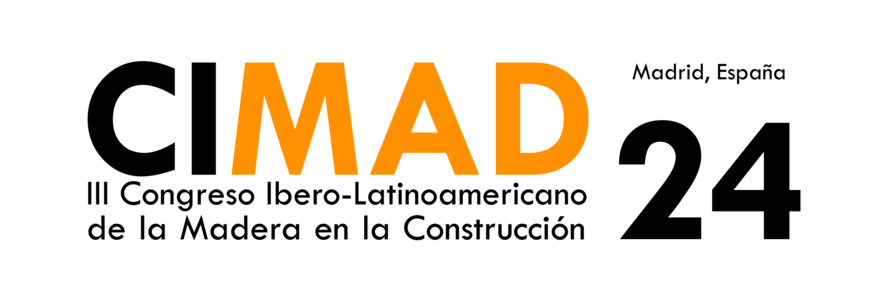Evaluating vibrations on a small-scale model of a timber footbridge
Keywords:
timber footbridges, pedestrian-induced vibrations, serviceability limit state, small-scale modelAbstract
In Brazil, the study of pedestrian-induced vibration on footbridges has been undertaken since the early 1990s, for concrete and steel footbridges. However, there are no recorded studies of this kind for timber footbridges. Brazilian code ABNT NBR 7190 (1997) gives design requirements only for static loads in the case of timber footbridges, without considering the serviceability limit state from pedestrianinduced vibrations. The aim of this work is to perform a theoretical dynamic, numerical and experimental analysis on simply-supported timber footbridges, by using a small-scale model developed from a 24 m span and 2 m width timber footbridge, with two main timber beams. Span and width were scaled down (1:4) to 6 m e 0.5 m, respectively. Among the conclusions reached herein, it is emphasized that the Euler-Bernoulli beam theory is suitable for calculating the vertical and lateral first natural frequencies in simply-supported timber footbridges; however, special attention should be given to the evaluation of lateral bending stiffness, as it leads to conservative values.
Downloads
Downloads
Published
How to Cite
Issue
Section
License
Copyright (c) 2015 Pedro Gutemberg de Alcântara Segundinho, Antonio Alves Dias, Marcelo Rodrigo Carreira

This work is licensed under a Creative Commons Attribution 4.0 International License.
Los autores/as conservarán sus derechos de autor y garantizarán a la revista el derecho de primera publicación de su obra, el cuál estará simultáneamente sujeto a la Licencia de Reconocimiento de Creative Commons CC-BY que permite a terceros compartir la obra siempre que se indique su autor y su primera publicación esta revista.
































